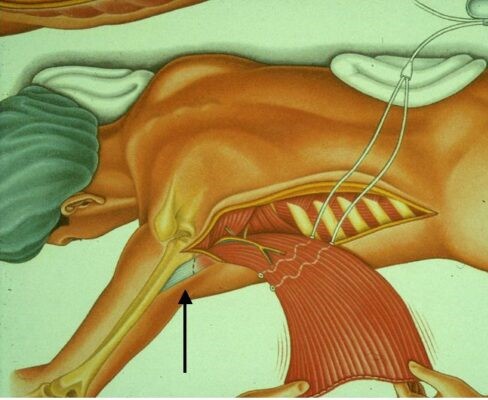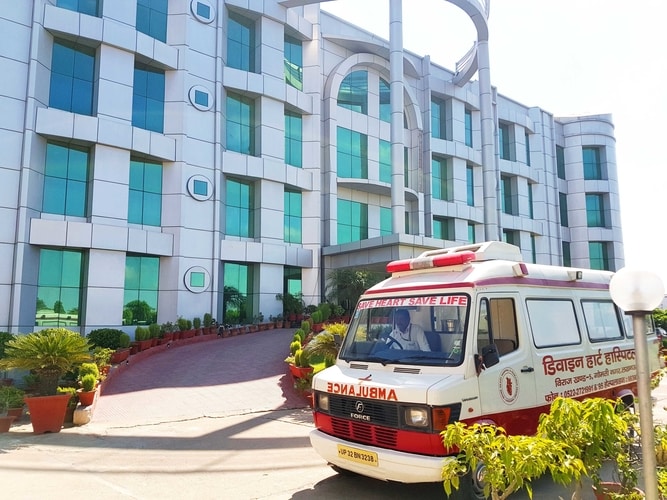
CARDIOMYOPLASTY : What is it, Types, Experience, and Risks.
Overview
Cardiomyoplasty is a new type of cardiac surgery in which the muscles of the skeletal system, particularly the muscles of the latissimus Dorsi are transformed into a muscle that is strengthened for the myocardium. A specific pacemaker is inserted into the muscle that aids in its contraction. The procedure is linked to damaged myocardium remodeling. It is a bio-medical technique to rebuild, repair, and strengthen biological tissue.
If the Cardiomyoplasty procedure is successful and the desired cardiac output is reached, it can be used as a bridge therapy and is proving that it’s time for the myocardium to be treated using different methods.

When Is It Necessary?
The procedure of cardiomyoplasty in the heart attack is complex that is carried out to treat the following conditions:
- Congestive cardiac failure– It is among the most frequent causes of hospitalization as well as the death of those living in the developed world. A heart transplant may be the only feasible option for this problem, however there’s a shortage of donors.
- Aortic artery disease- It is in the advanced stage of cardiac surgery.
Types of Cardiomyoplasty –
There are two kinds of cardiomyoplasty.
- Cellular cardiomyoplasty- In this kind of cardiomyoplasty, the cells are developed within the damaged heart. The progenitors are used to repair damaged heart cells.
- Dynamic cardiomyoplasty– In this kind of cardiomyoplasty, the skeletal muscles are transformed into a stronger form to enable them in order to function as myocardial cells. A pacemaker is also connected to aid in the contraction of the heart.
Cardiomyoplasty: Pre-operative Tests:
There’s a shortage of donors yet people still are looking forward to an organ transplant. Cardiomyoplasty (Cardiac Surgery) is a much more secure and feasible procedure. Before undergoing cardiomyoplasty, patients are required to undergo the following tests:
- 2-D ECO
- ECG
- Stress test using Thallium scan
- Measuring the highest oxygen consumption
- Heart rate peak
- The blood pressure needs to be managed
- The weight must be maintained
- A chest CT scan to assess the size of the latissimus donors
- To ensure that there is no chest
Procedure During Cardiomyoplasty
The Dynamic Cardiomyoplasty is carried out in two steps.
In the beginning, the muscles of the latissimus Dorsi muscle is severely retracted by the chest’s wall. Be careful to keep the subcutaneous tissues and nerve bundle in good condition. Two intramuscular stimulation leads are connected to the latissimus Dorsi and connect to the muscles that originate from the bundle by right angles.
In the second stage, within a few weeks, the latissimus dorsi becomes detached from its source and insertion and is tied around the heart.
The entire surgical procedure is performed under anesthesia.
Things to take care of before the cardiac surgery
- Exercises that involve physical force should be avoided until full recovery has occurred.
- It is important to prevent infection around the area of the cut.
- Intake of fluids should be enhanced
- Smoking cigarettes should be avoided
- The consumption of alcohol should be restricted
- There is no need to be stressed
- Healthy and balanced eating
This procedure is recommended for older people too.
What happens after an operation of Cardiomyoplasty?
A patient should visit a doctor post-op if they have these symptoms:
- Chest pain
- Fever
- Pus is present around the area of cut
- Inflammation around the area of cut
- Breathing shortness
- Discoloration that appears as a bluish shade of mucous membranes, especially the on the lips, tip of the nose and fingers’ tops.
What are the risks in this procedure in this kind of Cardiac Surgery?
It is a secure procedure, it is safe and avoids problems like an infection, thromboembolism or immunosuppression and a lack of donors. However, it is up to the doctor to recommend this procedure as there are some contraindications for this procedure.
These include patients suffering from :
- Diabetes
- Liver failure
- From kidney failure
- Lung dysfunction
Remember that your doctor is a partner in your recovery, so don’t hesitate to ask them questions. Divine Heart & Multispeciality Hospital offers different specialties in cardiology, cardiovascular surgery and many more, Book an appointment with a cardiologist.
Leave a reply

